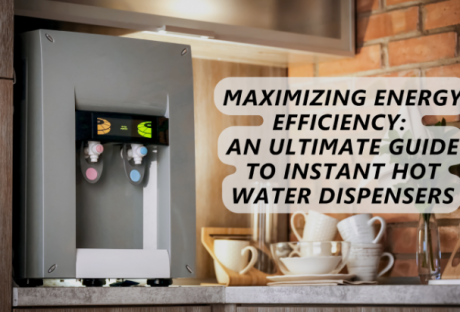The “fight” for a cleaner planet has been going on for a long time. People are trying to beat themselves because they and the things they use are the main polluters. Cars and everything that uses fossil fuels are among them, considering their emissions of exhaust gases into the atmosphere are huge.
At the global level, governments make efforts to reduce dependence on fossil fuels, knowing these are the biggest polluters. That’s why the desire to find alternative sources of energy from renewable sources has been present for a long time. While there are already certain options in use, as you can read here, new solutions are constantly coming up with improved performance and lower CO2 emissions.
Alternative fuels are essential for sustainable carbon-free energy supply and reduction of greenhouse gas emissions. And while you’re probably already familiar with their use, HVO (which stands for Hydrotreated Vegetable Oil) might be new to you. This low-carbon liquid fuel has gained attention lately because it seems like the long-awaited solution to pollution issues.
About The HVO Fuel

HVO implies using cooking oils and similar fatty waste as fuel. That’s not an entirely new concept since the use of processed vegetable oils in diesel engines has been known for more than a century. Nevertheless, it’s a new hype among eco-conscious consumers because it’s plant-based and very clean. Its CO2 emission and the number of PM particles are almost 90% lower than diesel and kerosene, fossil fuels that are still widely used.
The base of HVO is vegetable oil, that is, used cooking oil, such as sunflower, peanut, grapeseed, etc. However, it can also be made of both food-grade and non-food-grade oils (like palm or soy), animal fat residues, and tall oil. In their original state, these liquids could not be used as fuels, so they undergo hydrotreatment. It serves to change their consistency and composition for use in standard diesel engines.
Hydrotreatment involves the use of hydrogen to eliminate oxygen from the oils. This treatment takes place at very high temperatures, and then glycerides, or fat components, are separated. That’s a refining process that leaves this new fuel with minimal impurities, meaning that, during its combustion, there will be no harmful by-products and gases. That means less damage to the engine itself but also drastically less pollution.
The Use Of HVO

In general, HVO represents an alternative to fossil fuels, especially diesel, one of the major pollutants globally. So this new energy source can be used in all engines made for diesel. It means that its most common application will be in car engines. Still, it has found its purpose in off-road and agricultural machinery, boats, and generators. Some of the major truck makers have already made vehicles powered by HVO, as in this biodiesel-powered racing truck.
This new fuel from reputable manufacturers like SyntechBiofuel.com is equally usable in modern diesel engines as well as in older types that don’t have electronic fuel injection. They will have almost the same performance in operation as if regular diesel was used, only with much less damage to the engine, the entire circuit, and the environment.
Alternative fuels also have a huge potential to become the primary energy source for heating systems. Oil and gas still dominate in this area, but more and more households and industrial facilities are turning to alternative solutions. For instance, heat pumps are a popular yet costly solution.
HVO can be an even better and more cost-effective option if you plan to go green, that is, to switch to it from standard heating systems that use oil or kerosene. This venture won’t cost you extra money because there’s no need for system modifications and add-ons, as would eventually be the case with heat pumps.
Benefits Of Switching To HVO Fuel

As said, using HVO cuts the emission of harmful gases by up to 90%, depending on what makes the base of this fuel. That results from clean combustion because there are no impurities and PM particles in this processed liquid. Moving on, it means that engines will utilize a higher percentage of fuel, so their consumption will be lower. Simply put, HVO is a cleaner and more economical solution than diesel.
This fuel is also sustainable, as it’s made from waste (used cooking oil and animal fat). It also emits much less greenhouse gases than other fuels. As there’s no carbon in HVO, there are no toxic and potentially carcinogenic combustion by-products.
Another advantage of using HVO in standard diesel engines is that there is no need for their upgrades. But if you plan to use it as a replacement for heating oil in oil-fired boilers, there might be some minimal changes to your existing system. In any case, this can bring significant savings to both individuals and companies that, for some reason, have relied on fossil fuels until now.
Because it doesn’t contain oxygen molecules, HVO has a fairly long shelf life. So you can store it in specialized containers for up to 10 years without fear it will lose its properties and viscosity. For the same reason, HVO’s freezing point is lower than that of ordinary diesel. Also, it won’t harm the environment in case of accident spillage or leak.
How HVO Differ From FAME?
FAME is biodiesel, which isn’t the same as HVO, although there are certain similarities. For starters, both are plant-based. But what makes a significant difference is how they’re made. FAME utilizes esterification, which turns fatty molecules into esters and keeps oxygen molecules in it.
As explained, HVO is obtained by a refinery process that removes oxygen from fats, leaving them ester-free, clean, stable, and non-prone to oxidation. So, unlike FAME, hydrotreated vegetable oils can’t spoil, thicken, or degrade during storage.
HVO is the fuel of the future, and there are many good reasons for that. It’s a clean, non-toxic, sustainable, and economical alternative to diesel. It contributes to reducing the global carbon footprint, bringing no harm to the living world and the environment.
Read Also:





















